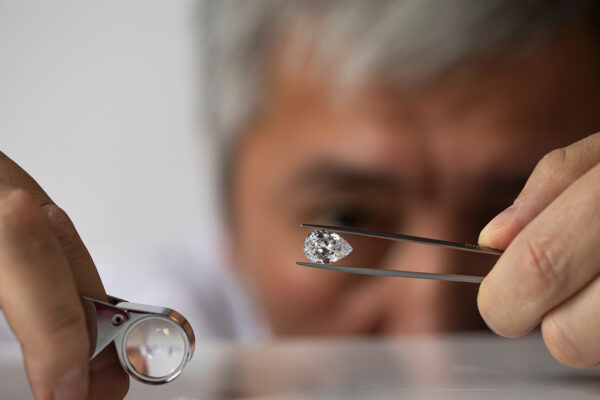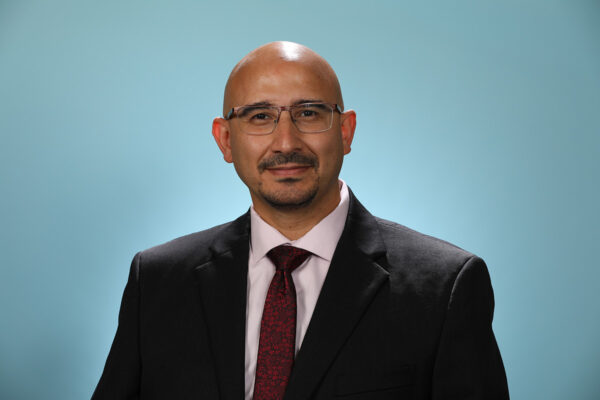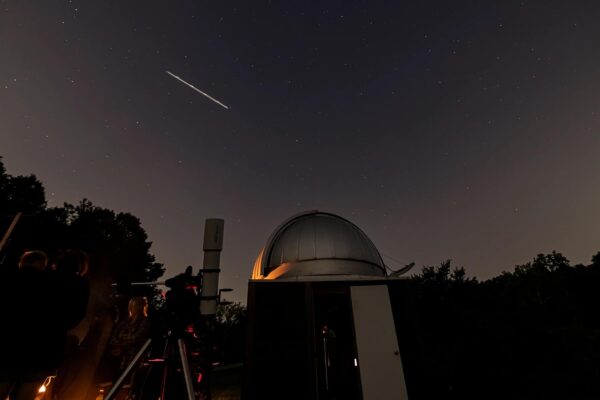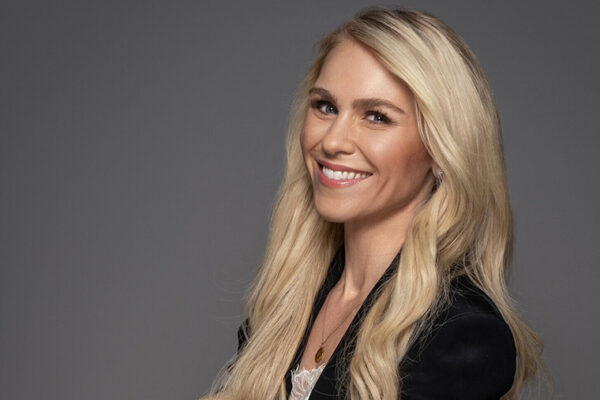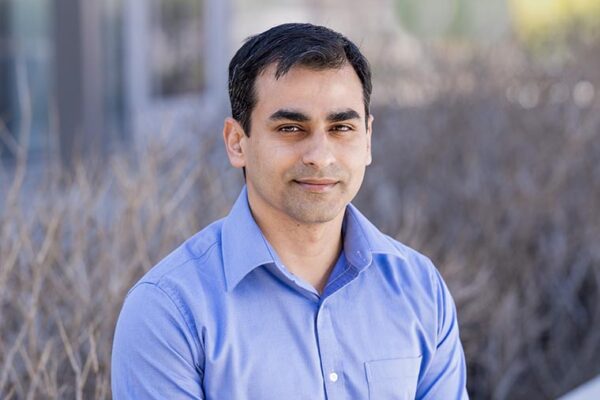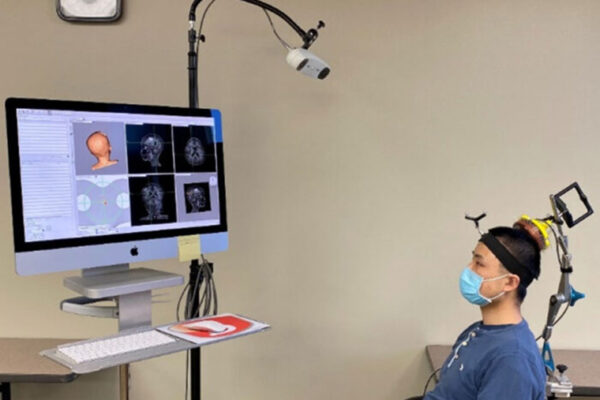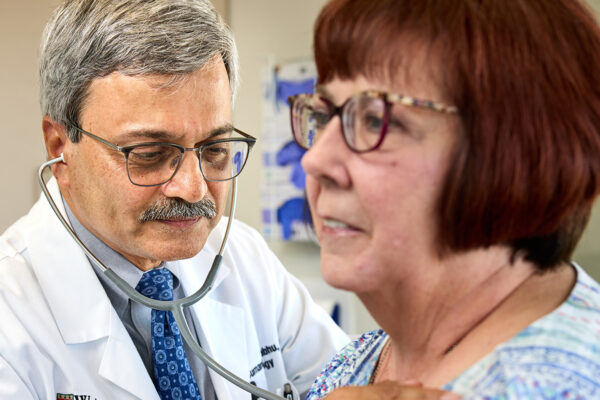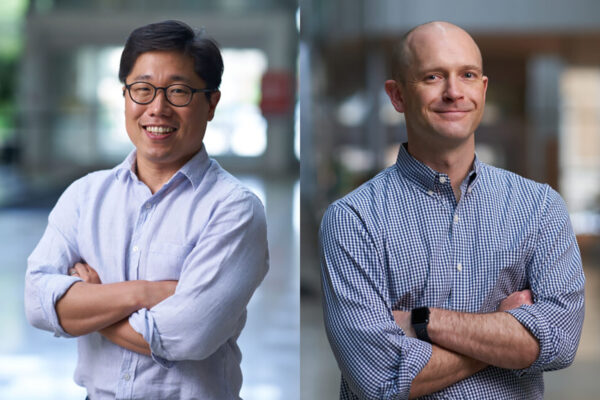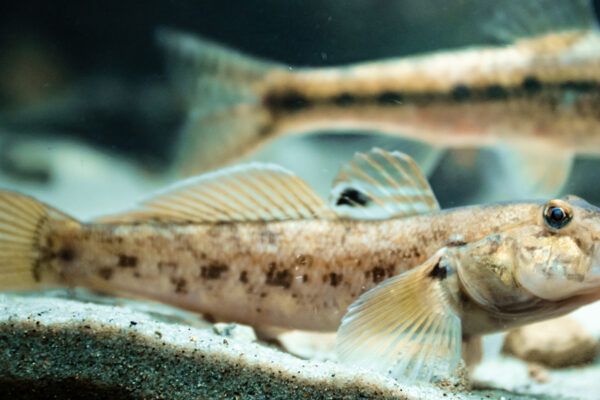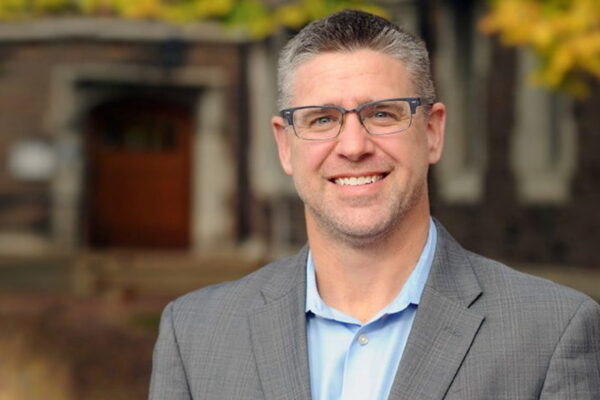Flawed diamonds
Physicists in Arts & Sciences are gaining quantum insights from imperfect crystals. The research supported by the Center for Quantum Leaps advances the field of quantum simulation using an atomic-level quantum system.
Ellebedy to develop next-generation coronavirus vaccines with broad protection
Ali Ellebedy, an associate professor at the School of Medicine, and colleagues have received a $13 million grant renewal from the National Institutes of Health (NIH) for a project that will bring together experts from multiple disciplines across five research institutions to create better vaccines to fight against current and emerging coronaviruses.
Tyson observatory is WashU’s dark sky site
Artificial light at night is making it more difficult to see the stars, especially in urban areas. The observatory at Tyson Research Center makes the most of its secluded location, offering a unique viewing experience.
‘She Leads’ to empower women through panels, presentations
The Ann W. and Spencer T. Olin-Chancellor’s Fellowship will host the 2023 “She Leads Symposium @ WashU” from 9 a.m.-3 p.m. Oct. 20 in Knight Hall’s Emerson Auditorium.
Curving light in a record-setting way
A team led by scientists and engineers, including researchers from the McKelvey School of Engineering, has created a unique, record-setting material that can bend one infrared ray of light in two directions.
Noninvasive, ultrasound-based brain biopsy is feasible, safe in people
Researchers at the School of Medicine and the McKelvey School of Engineering have developed a noninvasive technique called sonobiopsy that uses ultrasound and microbubbles to release biomolecules from brain tumors. A blood draw can collect the biomolecules to help inform treatment decisions.
Sumanth Prabhu
Sumanth Prabhu, MD, director of the Cardiovascular Division at the School of Medicine, is a heart failure specialist with a passion for patient care.
Yi and Gabel receive grants to study autism-related disorders
Jason Yi and Harrison Gabel, both at the School of Medicine, each have received two-year, $300,000 pilot grants from the Simons Foundation Autism Research Initiative. The researchers will use the funds to investigate genetic diseases that result in autism.
Using environmental DNA for fish monitoring
Kara Andres, a Living Earth Collaborative postdoctoral researcher, used eDNA to follow invisible trails of genetic information from fish. While her original study probed the Great Lakes, her recent work is focused on microbial communities in local waterways.
Steensma named Royal Academy of Engineering Visiting Professor
Joe Steensma, a professor of practice at the Brown School, has been named Royal Academy of Engineering Visiting Professor at The Engineering & Design Institute London.
View More Stories
